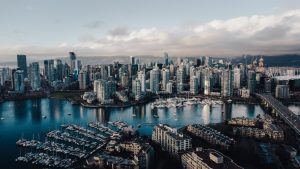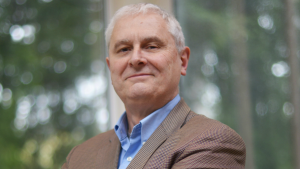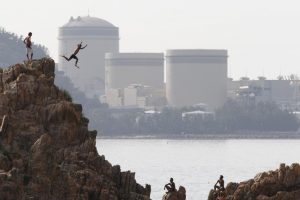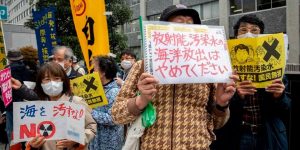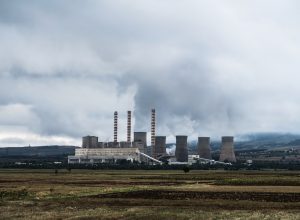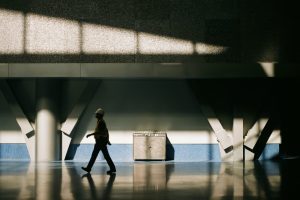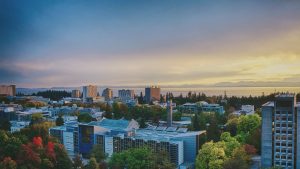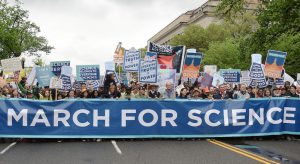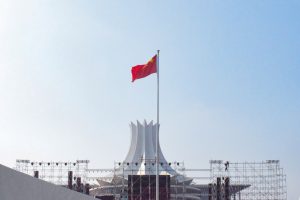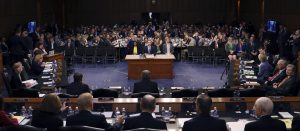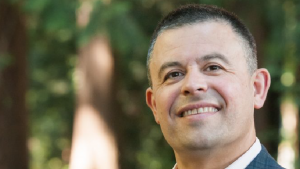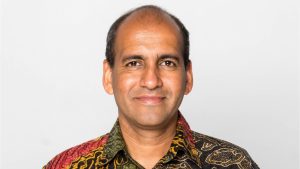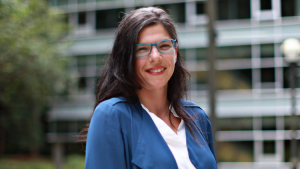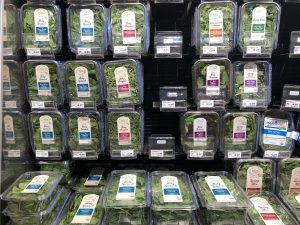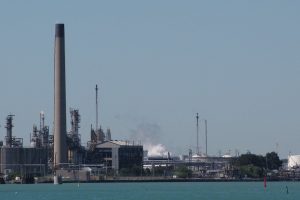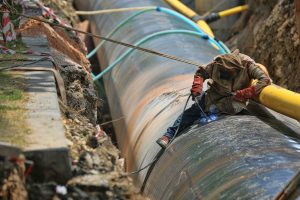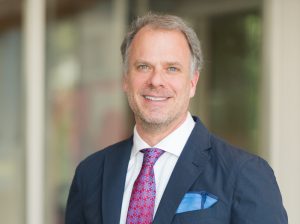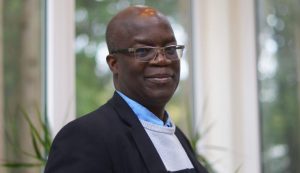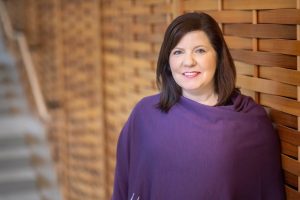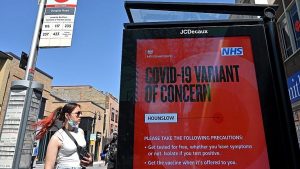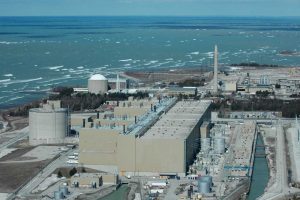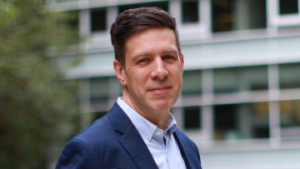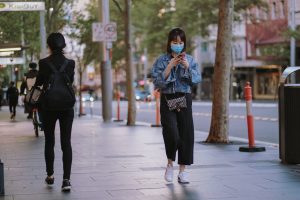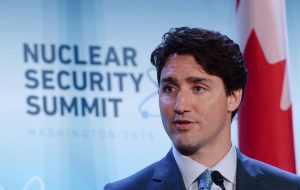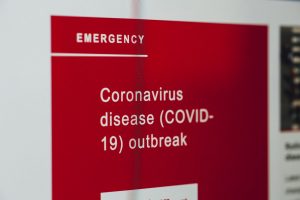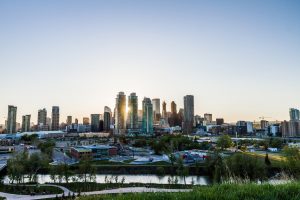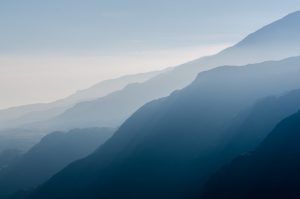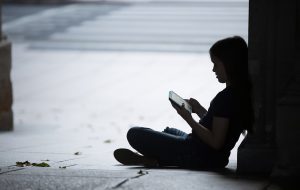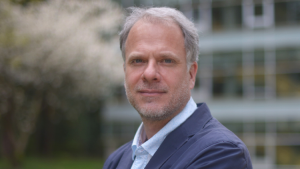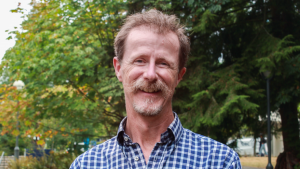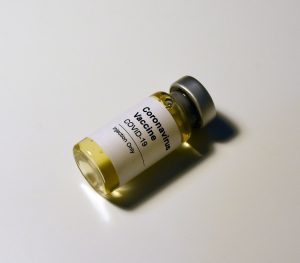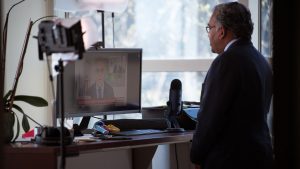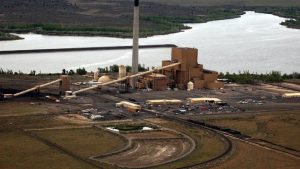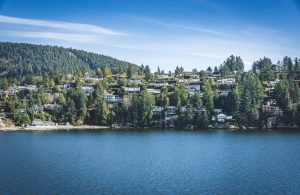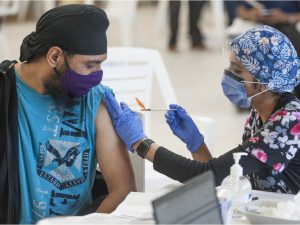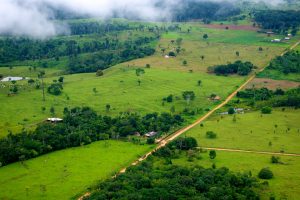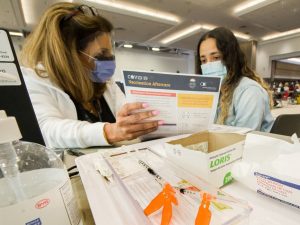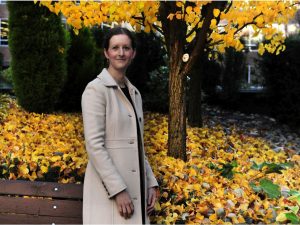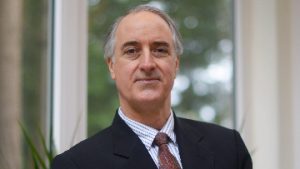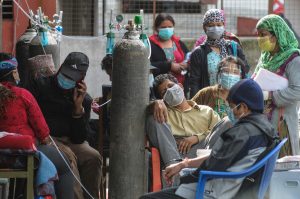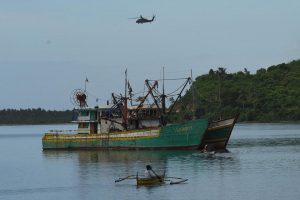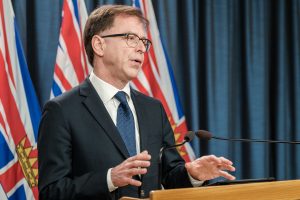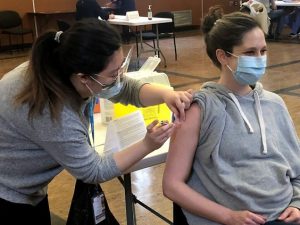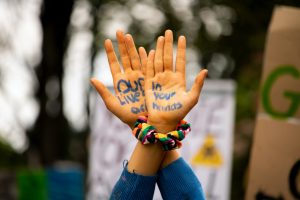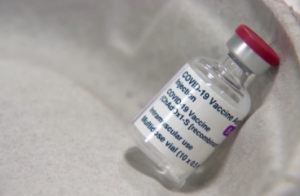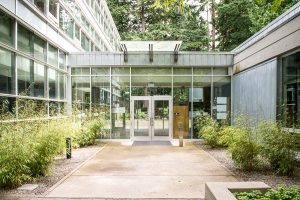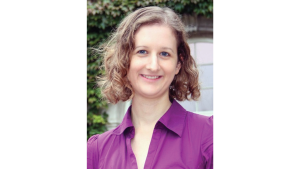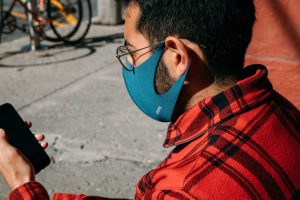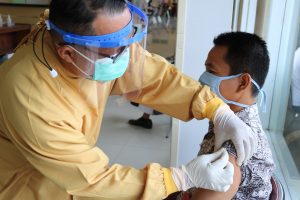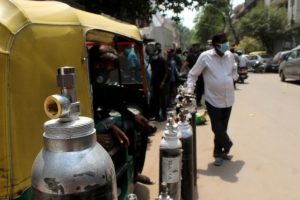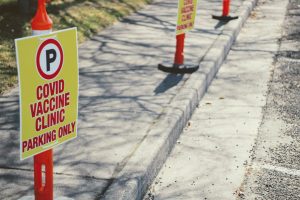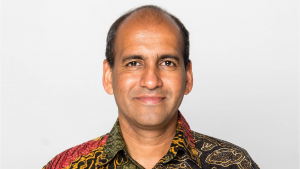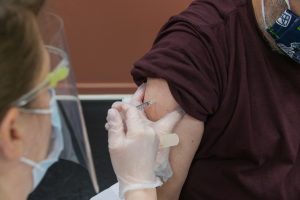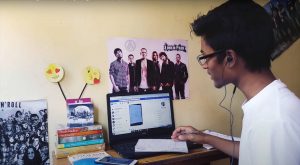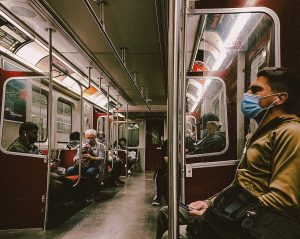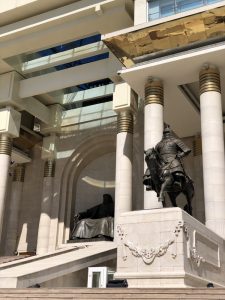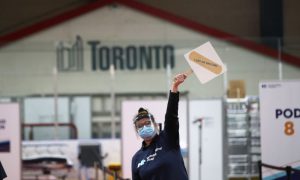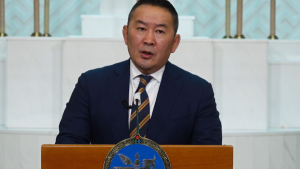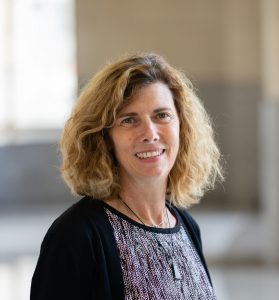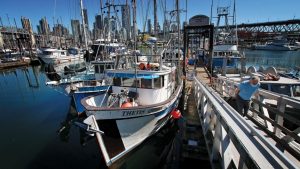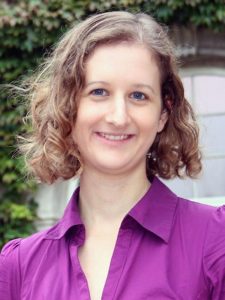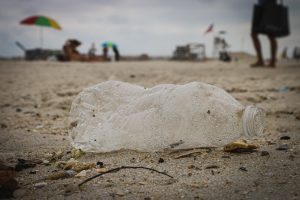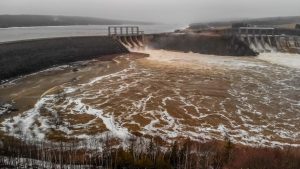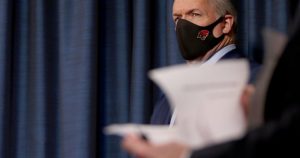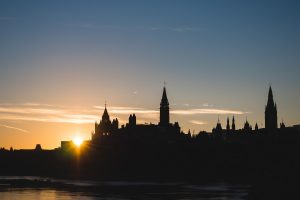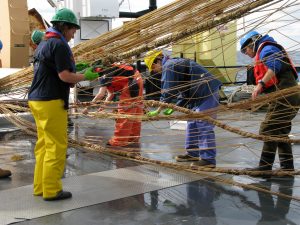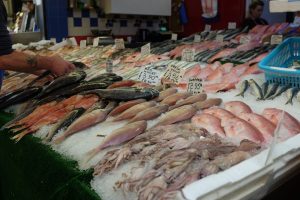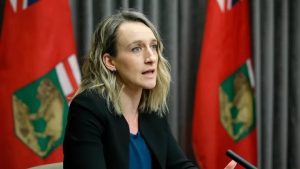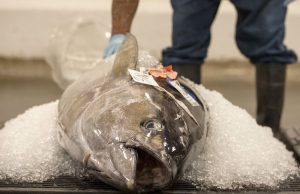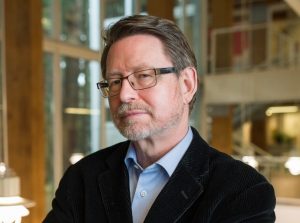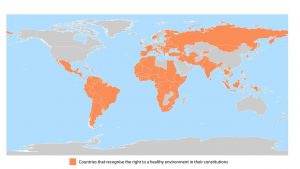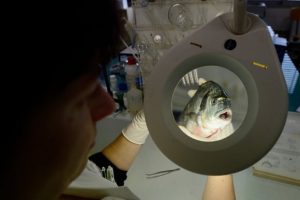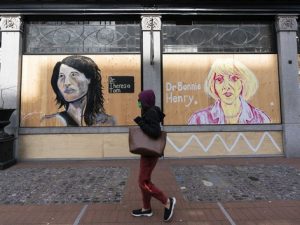Huawei CFO Meng Wanzhou Loses Court Bid to Enter New Evidence
After a B.C. Supreme Court ruling last week stopped Huawei CFO Meng Wanzhou from submitting new evidence in her own extradition case, SPPGA Professor Paul Evans says that more are recognizing that the current government approach is not working.
China’s 100-Year-Old Communist Party Has More Members than Most Countries Have People
The Chinese Communist Party celebrates its centenary this month. Professor Timothy Cheek (SPPGA; History) speaks on the party’s growth into one the biggest political parties in the world–with more than 95 million members–and what China’s leader is doing about it.
Setting the Stage for Wars During a Global Pandemic
In these unprecedented times, military spending, armed conflicts, and modernizing of nuclear arsenals continue as usual. The handful of nations holding these weapons “buck the international desire for nuclear disarmament”, Professor Ramana says.
Reconciliation Requires More than Shock and Outrage — It Takes Action
After the discovery of 215 Indigenous children on the site of the former Kamloops Indian Residential School, Adjunct Professor Andrea Reimer writes a letter to those in elected office to say reconciliation requires more than words – it takes action.
Developer Pulls Plug on Keystone XL Pipeline
SPPGA Professor George Hoberg discusses with Global News Morning BC what the cancellation of the contentious crude oil pipeline project means for hopes of a net-zero future.
Can Joe Biden Kick-Start Stalled Progress on Ocean Conservation?
With the WTO and Biden administration prioritizing environmental concerns, Professor Rashid Sumaila (SPPGA; Institute for the Oceans and Fisheries) is optimistic that an agreement to ban harmful fisheries can be reached in the near future.
Pipeline Workers Are Scaring Indigenous Elders Away from Their Own Lands
Indigenous people are experiencing a rise in harassment and intimidation cases amid pipeline battles, but Professor Sheryl Lightfoot (SPPGA; Political Science; FNIS) notes that tensions caused by lack of consultation between residents and governments is nothing new.
Covid-19 Variant of Concern B.1.1.7 Has a New Name: Alpha. Will It Stick?
Professor Heidi Tworek (SPPGA; History) applauds the WHO’s decision to rename the emerging variants of COVID-19 using the Greek alphabet, but still wonders if place-based naming will continue to be used with variants of concern.
Chickpea of the Sea
With heavy carbon-intensive practices impacting the fishing industry, plant-based alternatives could be the future of seafood. Professor Rashid Sumaila (SPPGA & UBC Oceans) warns that we need to take responsibility now lest ocean biodiversity disappears.
Countries Are Scrambling for Vaccines. Mongolia Has Plenty
At a time when vaccine supply is uncertain, Mongolia now has enough for its entire adult population thanks to deals with Russia and China. China’s shipment of 4 million Covid-19 vaccines could be part of a longer game, says SPPGA Professor Julian Dierkes (subscription).
The Right to Breathe: Landmark Legal Case a Fight for South African Children Harmed by Coal’s Deadly Air
“The pollution in Mpumalanga is just one example of the devastating impact of air pollution on children.” Professor David Boyd (SPPGA; IRES; UN Special Rapporteur on human rights and the environment) intervenes in a landmark legal case in South Africa as a friend of the court.
Citizen Lawsuit Seeks Court’s Help in Battle for Clean Air in Jakarta
Jakartans are joining a citizen lawsuit against the government to force officials to address the city’s grave air pollution. Professor David Boyd (SPPGA; IRES; UN Special Rapporteur on human rights and the environment) submits a brief in support, pointing out that air pollution is responsible for hundreds of thousands of deaths in Indonesia each year (Subscription).
Plastics Manufacturers Seek to Quash Toxic Designation in Court
Professor David Boyd (SPPGA; IRES; UN Special Rapporteur on human rights and the environment) comments on plastics manufacturers taking the federal government to court after Ottawa designated their products as toxic (Subscription).
If South Asia’s Pandemic Isn’t Addressed as a Whole, India’s Covid-19 Crisis Could Be Just the Beginning
Professor Veena Sriram (SPPGA; SPPH) and Professor Sara Shneiderman (SPPGA; Anthropology) release an article to address the escalating crisis in South Asia and how there is a need for Canada and its South Asian community to build on existing efforts to present a united fight against the pandemic.
UBC Policy Professor Calls for Politicians to Take Accountability for B.C.’s COVID Data Leak
News 1130 turns to Professor Heidi Tworek (SPPGA; History) days after the province’s leaked COVID reports made the rounds. It may be good, she says, for politicians to be more transparent in their communications.
Plan to Import Nuclear Waste Raises Larger Questions about Plans to Deal with Domestic Nuclear Waste
Following news that former prime minister Jean Chrétien was part of a secret project to set up a radioactive nuclear waste repository, officials have declared that the proposal is dead. But Professor Ramana and Kerrie Blaise say that the proposal raises ethical questions about moving nuclear waste or producing it in the first place (Subscription).
Vaccine Hesitancy in a Time of the Second Dose
Following Health Canada’s announcement that Pfizer vaccines are safe for young people between 12- 15, CBC Radio interviews Professor Heidi Tworek (SPPGA; History) on vaccine hesitancy.
Women Suffer Most When Disaster Strikes
“Women are up to 14 times more likely to die or be injured following a disaster.” MPPGA students Brayden Pelham, Erica Steele, Stephen Patenaude and Victoria Ker raise the question: What should we be doing differently in Canada to reduce the gender imbalance when future disasters strike? (Subscription).
Alberta Vows to Curb University’s Research Ties to China
Professor Paul Evans says although Canadian security agencies have identified some concerns, research collaboration arrangements with China are widely valued and facilitate advanced research and training.
Do Not Book: British Columbians Asked Not to Double up on First Dose of Covid-19 Vaccine
In a glitch of the B.C. vaccine registration system, many of the 200,000 B.C. residents who received an AstraZeneca jab are receiving invites through the central registry to book a first dose of the Pfizer or Moderna vaccines. Professor Heidi Tworek (SPPGA; History) comments on this story.
CTV National News for May 1: Critical Capacity
As hospitals in Canada reach their limits, Professor Heidi Tworek (SPPGA; History) comments on the need for patching the gaps in provincial I.T. and vaccination booking systems (segment starts at 4:50).
When Might the Wait Time Between Shots of Two-dose Covid-19 Vaccines Be Reduced?
As Canada’s vaccine supply is set to increase in coming weeks, some experts, including Professor Heidi Tworek (SPPGA; UBC Department of History), discuss the possibility of shorter intervals between shots.
B.C.’s ‘New and Innovative’ Pop-up Vaccine Clinics Halted amid Backlash and Mea Culpas
After an incident involving pop-up vaccine clinics that left hundreds of people without vaccines, B.C. health authorities are facing backlash. Professor Heidi Tworek (SPPGA; UBC Department of History) comments on the province’s bungled communications strategy.
Le Canada Mise sur le Nucléaire pour Réduire les GES
To meet its goal of climate neutrality by 2050, Canada has invested more than $75 million into the development of small modular reactors (SMRs). Professor Ramana weighs in on the conversation (French).
The Latest on the Cullen Commission
It’s been a week of high-profile appearances by senior BC politicians at the Cullen Commission that’s looking into money laundering in the province. We hear from Professor Gerald Baier (CSDI Acting Director; Political Science) on the proceedings.
She Was Nervous to Get Vaccinated, but Winnipeg Woman Is Now Encouraging Others to Get Their Shot
After a woman shares why she got vaccinated despite her initial hesitancy, Professor Heidi Tworek (SPPGA & UBC Department of History) emphasizes the importance of showing people that vaccinations are about protecting the community as a whole.
Learning During the Pandemic in Nepal
With limited access to reliable internet and devices in Nepal, MPPGA students Boyd Hayes, Nabila Farid, and Riya Sirkhell, and UBC Research Assistant Ujjwal Neupane discuss programs that teach parents about technologies for remote learning.
Doug Ford Apologizes
After Doug Ford’s apology and some of Ontario’s new restrictions rolled back, Professor Heidi Tworek (SPPGA & UBC Department of History) discusses how the provincial government can change its approach to pandemic communications. (13:10 mark)
What’s Gone Wrong in Canada
“A year ago, Justin Giovannetti left Canada to join his fiancée (and The Spinoff) in New Zealand. Today, his home country is confronting another debilitating wave of Covid-19.” He speaks to Professor Heidi Tworek (SPPGA; UBC Department of History) about the lack of a national response from Canada.
Former B.C. Premier Christy Clark Says Government Didn’t Alert Her to Money-laundering Spike until 2015
Christy Clark will testify Tuesday at the official inquiry “investigating the causes and impact of B.C.’s money laundering problem over the past decade”. Professor Gerald Baier (CSDI Acting Director; Political Science) was featured in Yahoo News.
Grappling with Parliament Limiting His Powers, Mongolian President Moves to Dissolve Ruling Party
“Political shenanigans ahead of a June presidential election in Mongolia have taken a new turn,” say SPPGA Professor Julian Dierkes, Bulgan Batdorj and Marissa Smith. Read more on how said political maneuvers could threaten Mongolian democracy.
‘War Means Blood’: Can a Treaty Stop Latin American Activists Being Killed?
A treaty aiming to protect activists in Latin America could be a “life-saving game changer” according to Professor David Boyd (SPPGA; IRES; UN Special Rapporteur on human rights and the environment).
Petits Réacteurs Nucléaires: Que Fera-t-On des Déchets
SPPGA Director Allison Macfarlane speaks on the feasibility of small modular nuclear reactors and waste management in wake of New Brunswick’s plan for deployment of SMRs (Article in French).
Japan: UN Experts ‘Deeply Disappointed’ by Decision to Discharge Fukushima Water
Three independent UN human rights experts, including Professor David Boyd (SPPGA; IRES) expressed deep regret over Japan’s decision to discharge potentially radioactive Fukushima nuclear plant water into the ocean, impacting millions across the Pacific.
‘We Face Very Tough Challenges.’ How Mongolia Typifies the Problems Posed to Small Countries by China’s Rise
Former President Elbegdorj has turned into one of China’s harshest critics in no small part due to Beijing’s recent efforts to curb Mongolian language and culture in Inner Mongolia. SPPGA Professor Julian Dierkes comments on Mongolia’s economic entanglement with China.
Why We Need to Change the Narrative on Outdoor Transmission
“From a biological standpoint, the ventilation in open outdoor spaces is incredibly potent, and leads to rapid dispersion of respiratory particles associated with COVID transmission,” says Professor Heidi Tworek (SPPGA; History) in a co-written story about outdoor activity during the pandemic.
Former NRC Chair Questions Economic Feasibility of New Nuclear in US
“Without further aid from Congress and the White House, the prospects for the U.S. nuclear industry will dwindle in the face of cheaper resources that are getting built faster than new nuclear generators,” says SPPGA Director Allison Macfarlane.
Government Response to COVID-19 Surge. Single-Use Plastic Pollution
On the BC Today Podcast, Professor Rashid Sumaila (SPPGA & UBC Institute for the Oceans and Fisheries) discusses the benefits and minimal costs of banning single use plastics, and how it should be implemented at the municipal and national levels.
China’s Gone Fishing
China is the world’s largest exporter of seafood – and its largest consumer. After decades of overfishing, the nation is now looking for seafood in open and contested waters. Professor Rashid Sumaila (SPPGA & UBC Oceans) has more.
B.C. Premier Backtracks on Blaming Young People for Rise in COVID-19 Cases
Professor Heidi Tworek (SPPGA; UBC Department of History) cautions that placing the blame for the rise in COVID cases on young people could discourage them from getting tested and affect the ability to fight the pandemic in the long-term.
Seafood Trawl Fishing May Release as Much Carbon as Air Travel
In response to a study that suggests that seafloor trawl fishing releases as much carbon as air travel, Professor Rashid Sumaila (SPPGA & Institute for the Oceans and Fisheries) adds that we are putting too much pressure on our natural systems.
Two Canadians Detained by China Appear in Court (BC) (Cantonese)
As Michael Spavor awaits his verdict, SPPGA Prof Paul Evans comments on the possibility of being put into the broader Chinese prison system, which would simplify visitations.
Manitoba Campaign Aims to Combat COVID-19 Vaccine Hesitancy
With Manitoba’s vaccine persuasion campaign underway, Professor Heidi Tworek (SPPGA & UBC Department of History) that the way myths and facts are presented could lead to further misinformation and hesitation around COVID-19 vaccinations.
Bait and Switch: Fish Fraud Rampant Worldwide, New Study Shows
After analysis of mislabeled seafood in various countries, Professor Rashid Sumaila (SPPGA & Institute for the Oceans and Fisheries) says that the worst offenders are those who purposely sell low-value fish in place of more expensive species.
The Human Right That Benefits Nature
As an advocate of the human right to a healthy environment, Professor David Boyd (SPPGA & UBC Institute for Resources, Environment and Sustainability) says that recognizing the right is “a catalyst for better actions” and calls for its recognition at the UN level.
Revealed: Seafood Fraud Happening on a Vast Global Scale
Professor Rashid Sumaila (SPPGA & Institute for the Oceans and Fisheries) discusses “fish laundering” and the economic incentives of selling low-value fish in place of more expensive species, which is often linked to illegal, unreported, and unregulated fishing fleets.
COVID-19: Radio Station at SFU Temporarily Suspends Program Linked to Website with Pandemic Conspiracy Theories
After a program from an SFU radio station was suspended, Professor Heidi Tworek (SPPGA & UBC Department of History) emphasizes that early and accessible response by health officials is the key to reducing COVID-19 misinformation and conspiracy theories.
